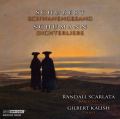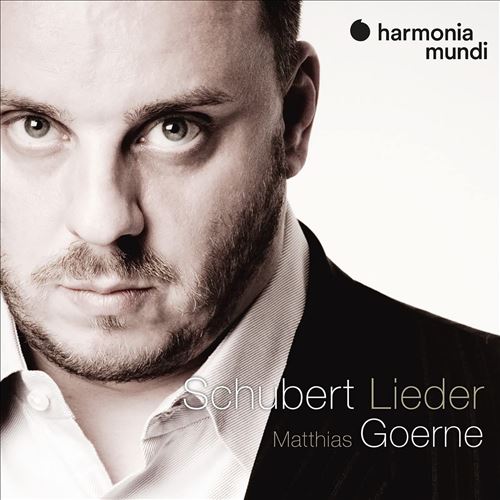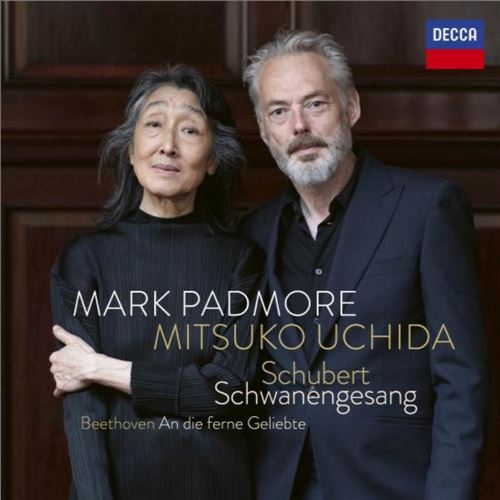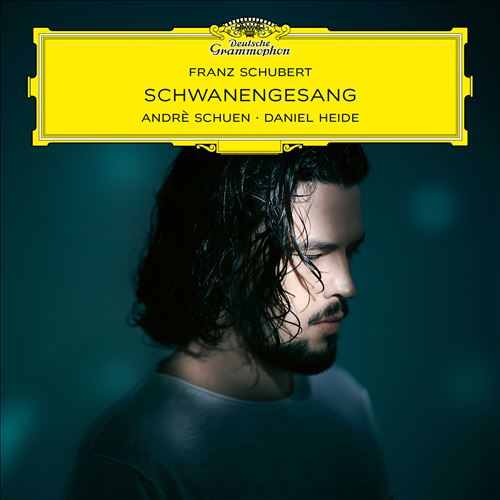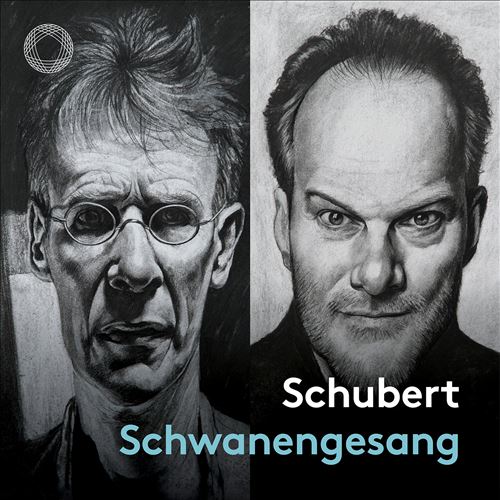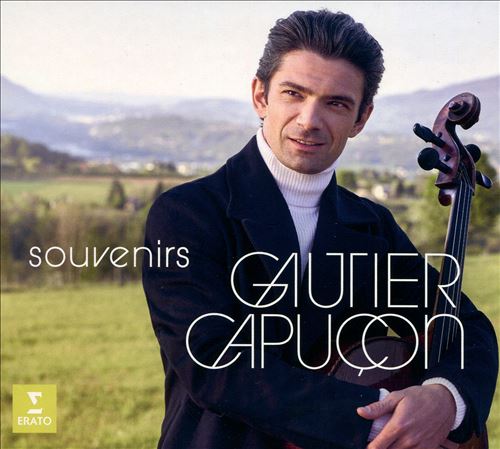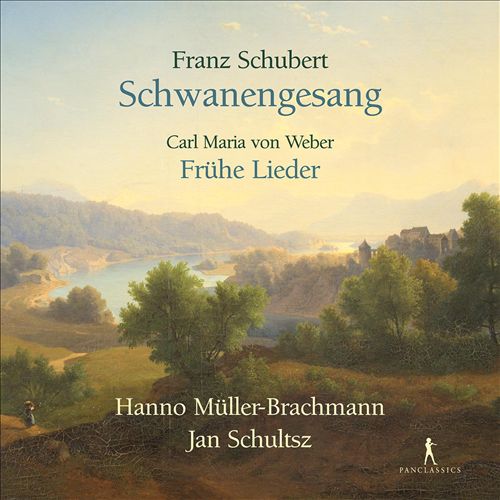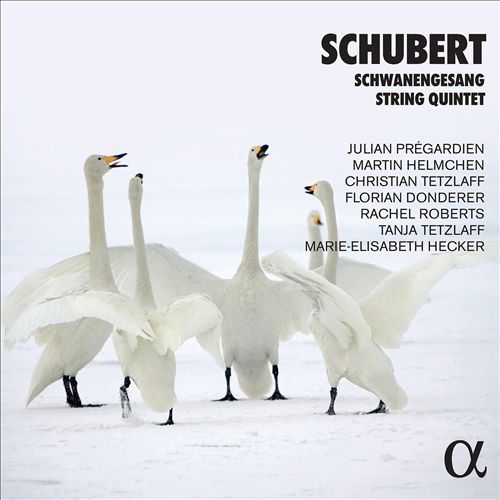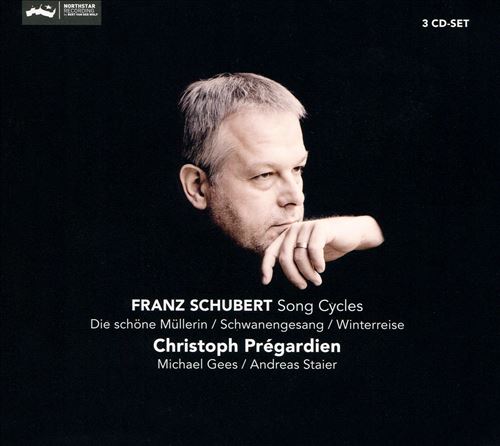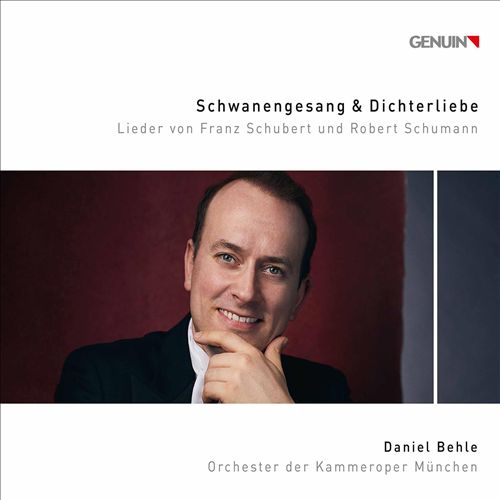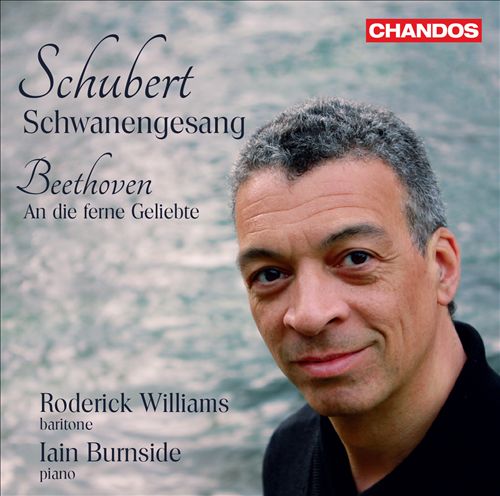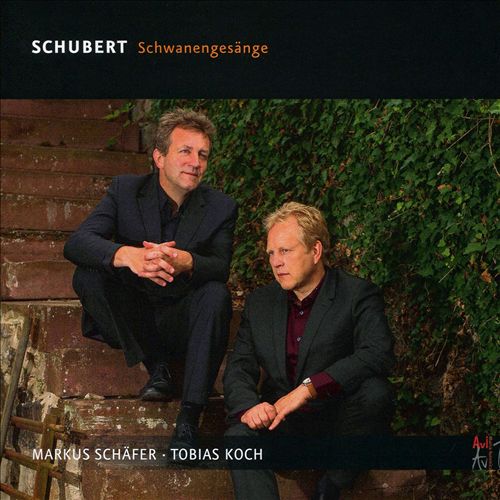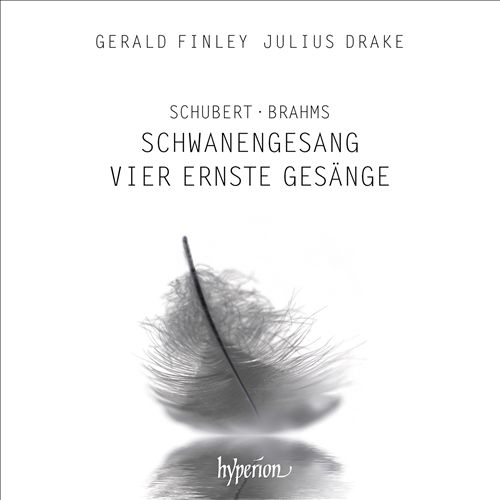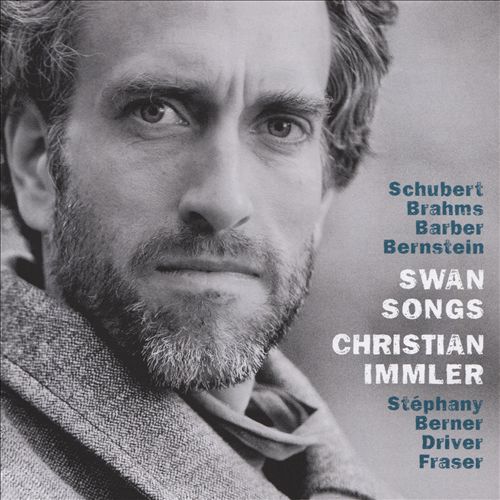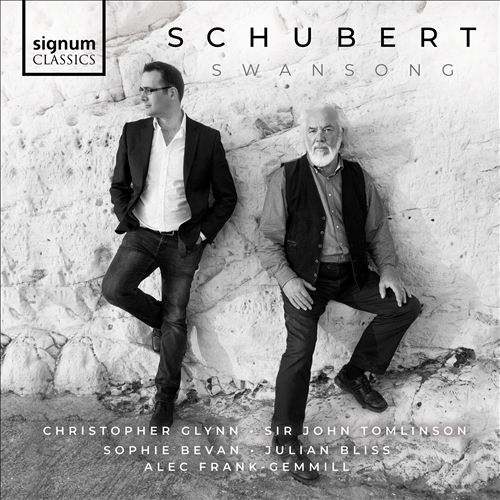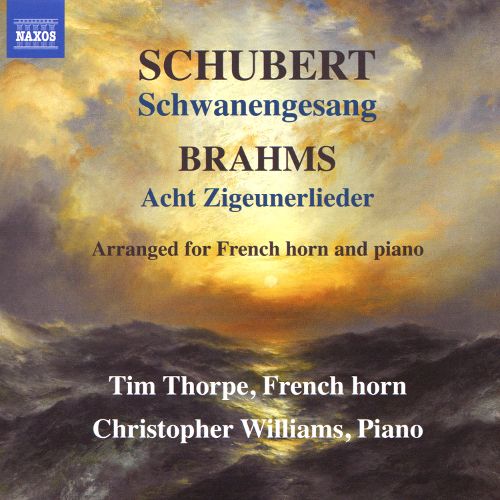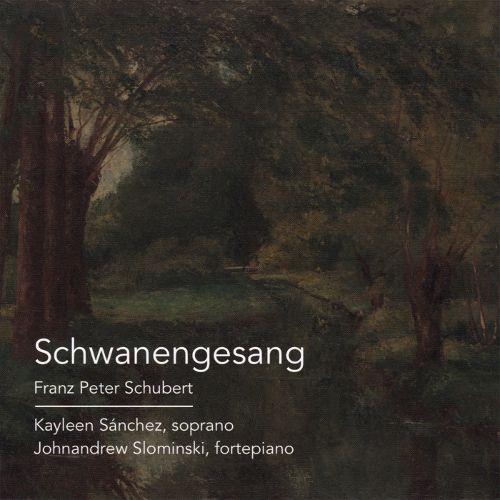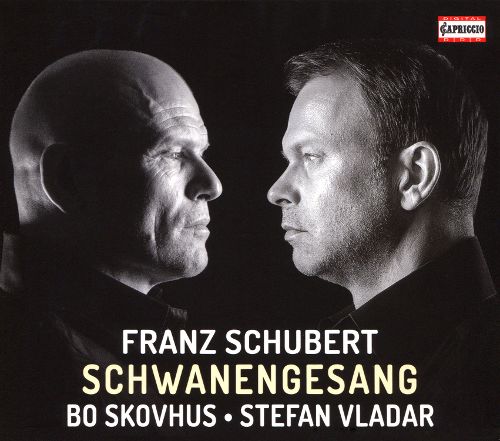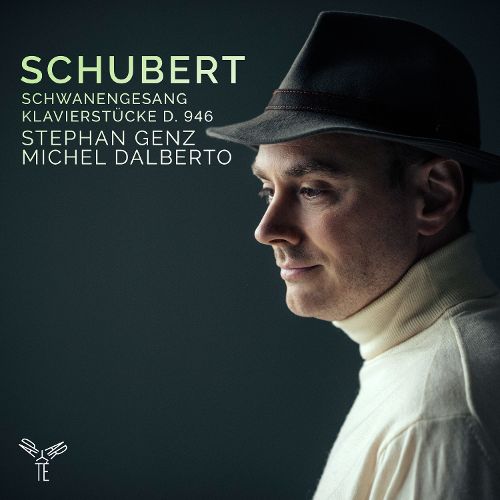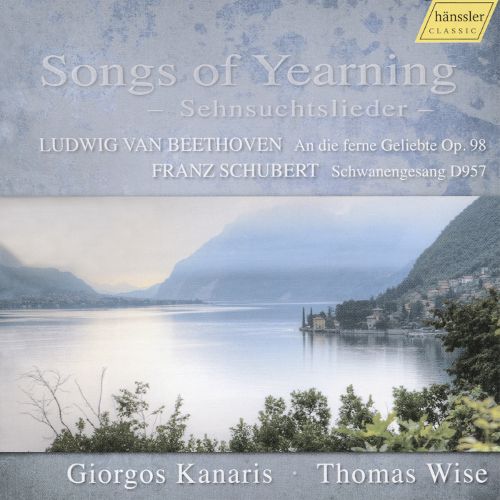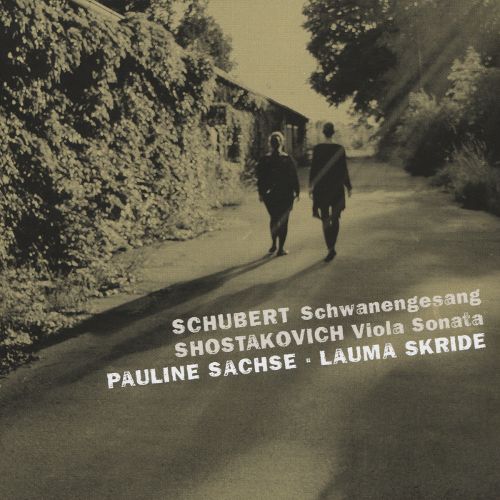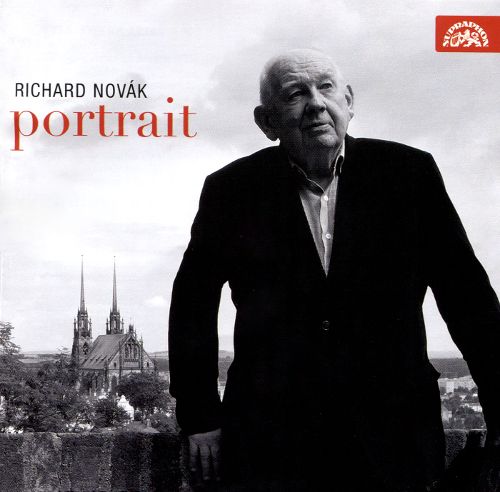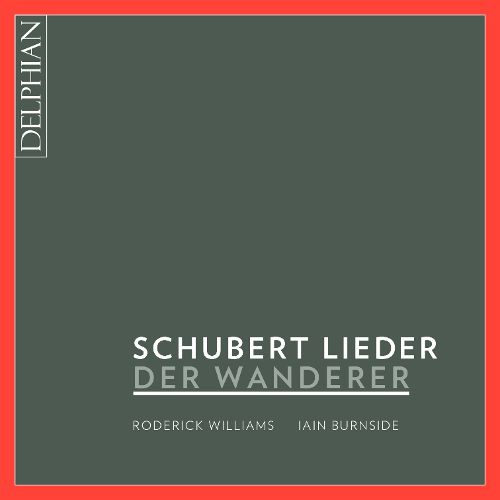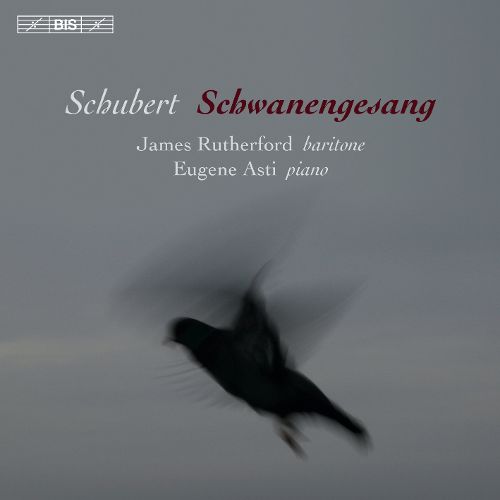Franz Schubert (프란츠 슈베르트)
Schwanengesang, D. 957
100
10,000
1,400
WORK INFO
작곡가: Franz Schubert (프란츠 슈베르트)작곡년도: 1828평균연주: 45:36악장1Liebesbotschaft2:522Kriegers Ahnung5:023Frühlingssehnsucht3:164Ständchen3:555Aufenthalt3:096In der Ferne5:397Abschied4:098Der Atlas2:189Ihr Bild2:5610Das Fischermädchen2:1211Die Stadt2:5812Am Meer4:1113Der Doppelgänger4:0714Die Taubenpost3:48Schwanengesang ("Swan song") D.957 (Deutsch catalogue) is the title of a posthumous collection of songs by Franz Schubert. The collection was named by its first publisher Tobias Haslinger, presumably wishing to present it as Schubert's final musical testament to the world. Unlike the earlier Die schöne Müllerin and Winterreise, it contains settings of three poets, Ludwig Rellstab (1799–1860), Heinrich Heine (1797–1856) and Johann Gabriel Seidl (1804–1875). Schwanengesang was composed 1828 and published in 1829 just a few months after the composer's death on 19 November 1828. In the original manuscript in Schubert's hand, the first 13 songs were copied in a single sitting, on consecutive manuscript pages, and in the standard performance order. All the song titles are by Schubert, as Heine did not give names to the poems. (Reed 259) Tobias Haslinger, Schubert's publisher, collected the songs together as a cycle, most probably for financial reasons, as Die schöne Müllerin and Die Winterreise sold very well as collections. Taubenpost is considered to be Schubert's last Lied. Franz Liszt later transcribed these songs for solo piano. Schubert also set to music a poem named Schwanengesang D744 by Johann Senn, unrelated to this collection.
On 2 October 1828, Schubert (after the manuscript had been written) offered the Heine set of poems to a Leipzig publisher by the name of Probst. We can assume, then, that Schubert – at least in the beginning – intended to publish the sets separately. In addition to this, the order of Numbers 8–13 as they appear in the manuscript is different from that of the poems as Heine published them (No. 10 followed by 12, 11, 13, 9, 8). It was customary for Schubert to respect the poet's sequence; the manuscript may not represent Schubert's desired order. The Seidl song, Die Taubenpost, has no connection to the rest of the cycle and was appended by Haslinger at the end to round up all of Schubert's last compositions.From WIKIPEDIA
RELEASED ALBUMS
-
SchwanengesangJune 6, 2025
-
LiederFebruary 7, 2025
-
Schubert: Schwanengesang; Schumann: DichterliebeNovember 29, 2024
-
Schubert: Lieder [2023]June 30, 2023
-
Schubert: Schwanengesang; Beethoven: An die ferne GeliebteMarch 3, 2023
-
Franz Schubert: SchwanengesangNovember 18, 2022
-
Schubert: SchwanengesangSeptember 23, 2022
-
SouvenirsNovember 5, 2021
-
Schubert: Schwanengesang; Weber: Fr체he LiederOctober 1, 2021
-
Schubert: Schwanengesang; String QuintetSeptember 10, 2021
-
Beyond the Music: The Complete RCA Victor RecordingsAugust 27, 2021
-
Franz Schubert: Song Cycles - Die Schone Mullerin; Schwanengesang; WinterreiseJune 18, 2021
-
Schwanengesang & DichterliebeSeptember 4, 2020
-
Schubert: Schwanengesang; Beethoven: An die ferne GeliebteMay 1, 2020
-
Huntington Estate Music Festival: Celebrating 30 YearsNovember 8, 2019
-
Schubert: SchwanengesängeOctober 18, 2019
-
Schubert: Schwanengesang; Brahms: Vier ernste GesängeSeptember 27, 2019
-
Schubert, Brahms, Barber, Bernstein: Swan SongsOctober 12, 2018
-
Schubert: SwansongOctober 12, 2018
-
Schubert: Schwanengesang; Brahms: Acht ZigeunerliederJuly 13, 2018
-
Franz Peter Schubert: SchwanengesangAugust 8, 2017
-
Franz Schubert: SchwanengesangAugust 4, 2017
-
SchwanengesangJuly 28, 2017
-
Songs of YearningApril 28, 2017
-
Schubert: Schwanengesang; Shostakovich: Viola SonataApril 14, 2017
-
Schubert: Lieder [Harmonia Mundi]November 11, 2016
-
Richard Novak: PortraitNovember 11, 2016
-
Schubert Lieder: Der WandererAugust 26, 2016
-
Decca Sound: 55 Great Vocal RecitalsMay 20, 2016
-
Schubert: SchwanengesangMay 13, 2016
ALBUM MUSIC
WORKS SHOUTS




